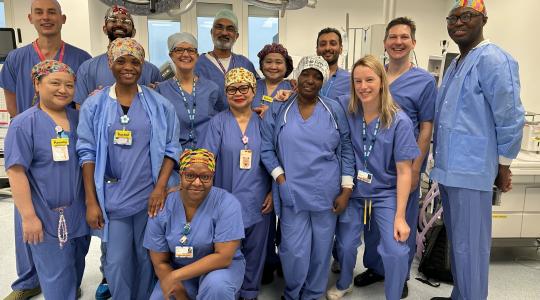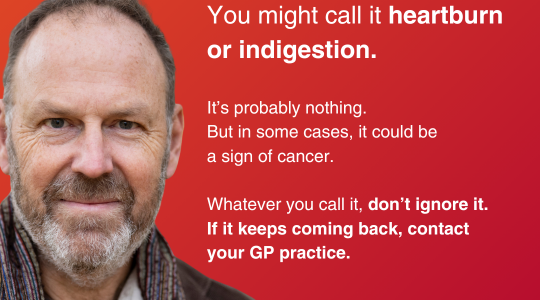'Fear of cancer recurrence' workshops
Receiving a cancer diagnosis, making decisions, and coping with treatment can be all-consuming. Many people focus on doing everything they can to get through each day, and complete treatments with the aim of being cured and putting “everything behind” them.
It is often only on completion of treatment that people feel that they have time to reflect on what has happened and consider what it means for the future. The period after completion of treatment is often full of mixed thoughts and emotions and one in which fear of cancer recurrence can emerge, just when people can start to feel that they are left unsupported, to deal with things on their own.
Fear of cancer recurrence refers to the “fear, worry, or concern relating to the possibility that cancer will come back or progress.”[i] Research suggests that most people who have completed cancer treatment report some degree of fear around cancer returning [ii] and that this can last for many years[iii]. Some degree of fear is entirely understandable, given the potential life treating impact of cancer, and in fact can be useful as it can keep people motivated, for example, to keep appointments for follow-up care or to engage in a healthy lifestyle[iv]. However, for some people these fears can become more significant, longer lasting and have a bigger impact on everyday life.
In response to this, we have set up a Fear of Cancer Recurrence workshop to improve the psychological wellbeing of the many people living beyond cancer in North East London, and help people to understand where they can go to access further psychological support if needed. This is a new initiative between Cancer Psychological Services at Barts Health NHS Trust and the local NHS Talking Therapies services (Newham, Tower Hamlets, Waltham Forest) and we hope that this workshop will become a routine part of people’s cancer care in North East London.
Sign up now for a free workshop:
10.30am-12.30pm, Tuesday 12 September - Tomswood Health & Wellbeing Centre, Whipps Cross Hospital, E11 1NR
10.30am-12.30pm, Thursday 12 October - Vicarage Lane Health Centre, 10 Vicarage Lane, Stratford, E15 4ES
2.00pm-4.00pm, Wednesday 8 November - Education Centre, Burdett House, Mile End Hospital, Bancroft Rd, E1 4DG
To book a place call/text 0778 380 5759
Or email cancerpsychologicals.bartshealth@nhs.net
What to expect from the workshop
Our free in person workshop lasts for two hours and is facilitated by qualified psychologists and cognitive behavioural therapists with expertise in working with people affected by cancer. The workshop runs at a variety of community and hospital locations across North East London to try and maximise accessibility for our local communities. The workshop is aimed at adults who have completed ‘curative’ treatments for cancer (for example, surgery, radiotherapy, chemotherapy) at Barts Health NHS Trust or who live, study or work in our local North East London boroughs. If you support someone who has had cancer, you are also very welcome to attend.
The aim of the workshop is to learn more the very understandable worries and fears people may experience around cancer returning, what can keep the fear going and what you can do to stop yourself from getting caught up in the fear. It is also an opportunity to connect with others who have faced similar experiences.
All previous attendees have found the workshops to be either ‘helpful’ or ‘very helpful’. When asked what was most helpful, one previous attendee said: “I was given very practical ideas to help with worries; it was good to have the time and space to think about this”. Another said: “It was so helpful to speak with others experiencing the same issues as me”.
If you are interested in attending, please see do not hesitate to get in touch with us by emailing cancerpsychologicals.bartshealth@nhs.net or calling/ texting 0778 3805759
[i] Lebel, S., et al. Support Care Cancer (2016). doi: 10.1007/s00520-016-3272-5
[ii] Luigjes‐Huizer, Yvonne L., et al. Psycho‐Oncology (2022).
[iii] Heidkamp, P., et al. Support Care Cancer (2021). doi: 10.1007/s00520-021-06329-z
[iv] Dinkel, A. & Herschbach, P. Recent Results Cancer Res (2018). doi: 10.1007/978-3-319-64310-6_2.





